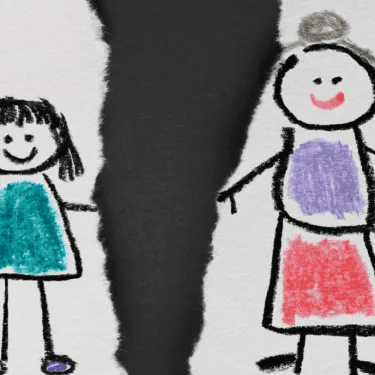 Losing a pregnancy can be a devastating event, from which many never truly recover. To make matters worse, many Australian women suffering the emotional and physical trauma of miscarriage are not entitled to even a day of paid leave.
Losing a pregnancy can be a devastating event, from which many never truly recover. To make matters worse, many Australian women suffering the emotional and physical trauma of miscarriage are not entitled to even a day of paid leave.
Approximately 98% of pregnancy loss occurs in the first twelve weeks. Yet, Under the Fair Work Act, a stillborn child is one that weighs at least 400 grams at delivery or whose period of gestation was at least 20 weeks. This means that some employees fall through the gaps of the legislation and receive little recognition from their employers in respect to their loss and its impact on their ability to continue work.
One support group, Pink Elephants, is calling for federal recognition of first-trimester miscarriage in the Fair Work Act. Pink Elephants recommends that a period of two paid days of leave for ‘bereavement’ be legislated in instances of early pregnancy loss. This kind of statutory reform would allow at least some period of recovery for both the physical condition of the mother and the psychological state of the couple.
Encouragingly, Australia is one of four countries worldwide that provides an equivalent duration of parental leave for same-sex couples of both genders. Perhaps in the future, there will also be statutory recognition of the impact that early pregnancy loss has on one’s ability to work.
If you would like to discuss anything further with our experts at Freedman & Gopalan Solicitors, call us on 02 8917 8700.
It’s a situation most land buyers know well; You purchase the perfect plot of land and throw yourself into planning your dream home, only to wait months for permits and building approval.
While managing delays is a common hassle for many land buyers, these delays could do more than just frustrate you – they could cost you thousands.
In building contracts, it is common for builders to add a clause explaining that they will charge owners an additional fee if construction is delayed. It might look something like this:
“If the time allowed in Tender for building works to commence expires…the builder shall be entitled to increase the contract price by way of contract price adjustment of 4.5%.”
While the contractual clause may seem ordinary, it has forced countless Australians to cash out because of circumstances beyond their control.
Although it takes an average of 68 days to process a Development Application in NSW, many landowners have reported that such processes have taken far longer. As the time ticks closer to the building commencement date, owners waiting for Approvals are powerless to hasten the process.
This week, Freedman & Gopalan saw the consequences of this clause first-hand. The client in question was ecstatic about the purchase of her plot of land, in a buy and build deal with one of the country’s leading developers. After months of unexpected delays in obtaining relevant permits, her builder hit her with a fee of over $15,000 to be paid up front.
It is vital to have your contract professionally reviewed before you put your signature on the dotted line.
To discuss having your building contract reviewed by our experts at Freedman & Gopalan Solicitors, call us on 02 8999 9837.
 In these unprecedented times, travelling interstate has never been more complex. On top of complicated COVID policies and quarantine requirements that vary between states, domestic travellers must now be aware of a new rule; mask wearing is compulsory on all domestic flights.
In these unprecedented times, travelling interstate has never been more complex. On top of complicated COVID policies and quarantine requirements that vary between states, domestic travellers must now be aware of a new rule; mask wearing is compulsory on all domestic flights.
On 8 January 2021, the National Cabinet agreed that face masks within airport terminals and on domestic flights would be mandated. Masks are not required for children aged 12 and under, as well as for those with an exemption.
Freedman & Gopalan recommends reviewing the guidelines of the state/territory to which you will be travelling, as requirements may vary. You can access these guidelines by clicking the links below.
- Australian Capital Territory
- New South Wales
- Northern Territory
- Queensland
- South Australia (Emergency Management (Cross Border Travel) Direction)
- Tasmania
- Victoria (Stay Safe directions)
- Western Australia
Non-compliance with state/territory jurisdiction will eventuate in hefty fines. Recently, two travellers were collectively fined over $2,300 for failing to wear masks in Hobart Airport. Considering this, Inspector Brian Edmonds emphasised that the “direction to wear face masks [exists] to protect travellers and the community from the risk of transmission of COVID-19.”
If you would like to discuss anything further with our experts at Freedman & Gopalan Solicitors, call us on 02 8999 9837.
Things can quickly become complicated when a contract contains provisions that involve third parties. If you are drafting or reviewing a contract, it is worth noting how liability impacts you. To do so, it is important to distinguish between“joint”, “several” and “joint and several” liability.
If your contract contains the words:
Joint: For example, X and Y must pay $200 to Z.
Ultimately, this term means both parties are liable for the entire $200. However, if X pays, the sum of what Y owes is reduced. Thus, both parties are sued together.
Several: For example, X must pay $100 to Z and Y must pay $100 to Z.
In this scenario, each party is liable for their part of the agreement only. If X pays, Y still must pay their part. Therefore, you are only sued for your stake in the agreement.
Joint and Several: For example, X and Y must pay $200 to Z and X promises to pay $200 to Z and Y promises to pay $200 to Z.
Like the first scenario, both parties are liable for the payment. Therefore, if one party pays a contribution to the total amount, the other does not have to pay as much. Typically, parties are sued separately.
Generally, it is easier to sue a single party who is jointly and severally liable. On the other hand, where parties are jointly liable, the Court prefers everyone liable under the contract to be joined as a defendant.
The most useful ‘first-step’ in interpreting your contractual obligation is to check the “interpretation” section. Often, there will be a boilerplate clause addressing liability. If there is still ambiguity or uncertainty with regards to the allocation of liability, you may need to seek legal assistance.
If you would like to discuss anything further with our experts at Freedman & Gopalan Solicitors, call us on 02 8917 8700.
For the average person, breaking the law may seem hard, but did you know that there are many things that you might do in your everyday life that are considered illegal?
Read on below for a list of 5 things that you are likely guilty of committing.
- Jaywalking
Jaywalking is the act of crossing a street at a place other than a suitable crossing point. Jaywalking is considered illegal in many countries such as Australia, England, and the United States. The penalty for jaywalking in New South Wales is $72.00.
- Playing Loud Music while driving
In Australia, there are many laws involved with driving your vehicle. Some of these laws are obvious, like driving without a license or driving over the speed limit, but there are also niche laws that can lead to a fine or loss of license such as playing loud music while driving. If a police officer catches you playing music too loud, they can fine you up to $200.00 for disturbing the peace. Is this law justified? Yes, loud music can prevent you from being aware of your surroundings which can lead to accidents occurring when driving.
- Riding a bicycle on the sidewalk
Bicycle riders must obey all road rules, as a bicycle is considered a vehicle in NSW. Not only do bicycle riders have to follow all the road rules, but they must also wear a helmet while riding. Until recently, only children under the age of 11 could ride their bike on the sidewalk. This was changed on 23 July 2018 where NSW laws changed to allow any children under the age of 16 could ride their bike on the footpath plus any adult accompanying them. For the rest of the population, riding on the sidewalk is illegal and can result in fines from $50 to $200.
- Using copyrighted images
If you have ever used images that are copyrighted or that are not apart of the public domain then you are likely breaking the law. However, there are ways that you can use copyrighted images legally such as:
- Obtaining permission from the image owner to use them,
- Using the images for non-commercial use,
- Using the image for research,
- Purchasing the rights for the image
- Littering
The protection of the Environment Operations Act 1997 is the main law in NSW that prevents littering. It states that ‘a person shall not leave, throw, deposit or abandon litter. Litter is defined as ‘rubbish that is left lying in an open or public place.’ Aggravated littering, such as throwing rubbish out of a moving car or leaving your lit cigarette on the ground can result in a $600 fine. Litter laws are set in place to conserve the environment. Littering is very harmful to Earths environment, most litter ends up in the ocean, rivers or soil, which can pollute it and make the environments toxic.
If you would like to discuss anything further with our experts at Freedman & Gopalan Solicitors, call us on 02 8917 8700.
On 19 November, the Stronger Communities Legislation Amendment passed NSW Parliament, making significant reforms to the Criminal Procedure Act 1986. This is part of a broader reform of domestic violence legislation in NSW in order to better protect victim-survivors of domestic and family violence
Victims may now give evidence in closed court, meaning that only certain people are allowed to come into the courtroom, in contrast to open court where anyone is able to come in and watch the case from the public sitting area. The victim-survivor may also now opt to give evidence via audio-visual link. Under the current laws, evidence can only be given remotely if the court grants permission. Now, victims have a prima facie right to give evidence this way.
Victims are also now excused from personal cross-examination from self-represented accused. Previously, if the accused was representing themselves (rather than having a lawyer), they were able to cross-examine the victim directly, which created a highly traumatic experience for the victim of the domestic violence, and was seen by some victims as an extension of the same violence and abuse they had experienced previously. The reforms are intended to ease the burden and ensure victims are better supported, according to Attorney-General Mark Speakman.
Another important reform is that the protection of family pets will be a standard condition in Apprehended Personal Violence Orders (APVOs). The Attorney-General said that animals are used in manipulative, coercive control situations to punish the victim who has tried to leave the relationship. Now harm, or threatened harm, to harms will be classed explicitly as a form of intimidation, and protection of the animal/s will be a standard condition.
If you or someone you know is concerned about your legal rights in a relationship, whether it be issues relating to domestic violence, property settlement or child custody, please do not hesitate to contact Freedman & Gopalan Solicitor on 02 8917 8700 for advice.
Are you insured, have you read your Terms & Conditions, and do you know your duties, pursuant to the Insurance Policy and the statute governing Insurance Contracts?
Insurance Law is one where financial risk is transferred from one person/organisation to another person/organisation, in exchange for a consideration, which in most cases is monetary. If you are deciding on taking up a policy to transfer your financial risk or you have already taken one, what is the most critical is that you peruse in detail your terms and conditions and precisely understand situations in which you might be denied claims. We highly recommend you get some legal advice, prior to proceeding with a certain Insurance Policy, to ensure you understand the terms and conditions.
Also be aware that, there are certain circumstances, apart from those mentioned in the policy, in which you could be denied the claim. One of the most common reasons for an insured to be denied a claim is when you are in breach of your duty to act in utmost good faith. There is no clear definition in the Insurance Contracts Act 1984 (hereinafter referred to as “the Act”), for utmost good faith. The Act obliges all parties to act in utmost good faith, which means that you should act honestly, fairly and not withhold any information that is critical and relevant to the policy. Accordingly, if you as an insured does not act in utmost good faith, you could be denied your claim. There is no exhaustive list for the insured’s duty to act in good faith. It depends on the factual circumstances and varies from case to case. The following are a few to outline;
- The duty of disclosure is a manifestation of utmost good faith. The insured must disclose all information/documentation, that could be relevant to the policy and to the decision of insurer. The basic principle when dealing with an insurer is ‘if in doubt, declare’.
- The insured must not deliberately provide a false answer in a claims form or recklessly complete the form and must not intentionally withhold information in making a claim, with an intention of deceiving the insurer.
- The insured must act reasonably to reduce or minimise the insurer’s liability.
- The insured must provide information required by the terms of the policy and the insurer and in the case of a legal indemnity policy, the insured must advise the insurer that proceedings had been initiated against it.
- The insured must not fraudulently make a claim, exaggerate the circumstances pertaining to a claim and engage in horse trading to settle a claim.
- The insured must provide information to enable the insurer to decide on indemnity and must notify the insurer immediately, of circumstances which may affect the insurer’s future conduct with respect to the policy.
If you are struggling on deciding whether you should proceed with an insurance policy or you are denied a claim by your insurer, please feel free to contact us on 02 8917 8700, we can assist you in resolving the matter amicably and expeditiously.
A recent article in the Sydney Morning Herald, which you can read here, told stories of adult children who have 'divorced' their parents, which has led to further discussion about what exactly it means to 'divorce' your parents.
If the child is under 18
If a child is under 18, in certain situations, they can 'divorce' their parents so that the state becomes their guardian. This means the child is no longer under the control or authority of their parents, and the parents no longer have legal parental duties and responsibilities. This process is also sometimes known as 'child emancipation'.
A child or a parent can apply for this, and the process is then handled by the Children's Court. The situations where the Children's Court will grant such an order are where the parents harm the child, or risk harm to the child, or where there are irreconcilable difference, even where no harm is involved. The process requires dispute resolution, including mediation and counselling, in order to satisfy the court that all avenues have been tried.
If the child is over 18
If the child is over 18, there is no equivalent process in the Children's Court, or any other court. The process that we might call 'divorcing your parents' is an emotional and social estrangement between the adult child and their parent.
However, legal issues still may arise where a third generation gets involved - for example where there is the estranged parent, their adult child, and then a grandchild. While the adult child doesn’t legally divorce their estranged parent, they might deny the estranged parent access to the grandchildren. Here, the grandparents might attempt mediation, or bring proceedings in the Federal Court to see the grandchildren.
In Australia, the law recognises the importance of the grandchildren-grandparent relationship. The Family Law Act 1975 (Cth) s 65C provides that a grandparent may make an application to the Family Court for a parenting order.
If this article raises any queries or issues, please contact our family law specialists at Freedman & Gopalan Solicitors by filling out the online enquiry or calling us on 02 8917 8700.
On last Friday's F&G Facebook Live we discussed dog bites. What are your rights if bitten, and what are your duties and obligations as a dog-owner? What is the legislation in this area, and what is the process that occurs after a dog attacks someone?
It is important to note that dog-owners may be responsible to pay for the injuries and damages caused by a dog attack with regards to civil liability, and dog-owners may also be held criminally liable under the Crimes Act and the Companion Animals Act.
Contact Freedman & Gopalan Solicitors on 02 8917 8700 or via our online enquiry form if you need legal advice.






